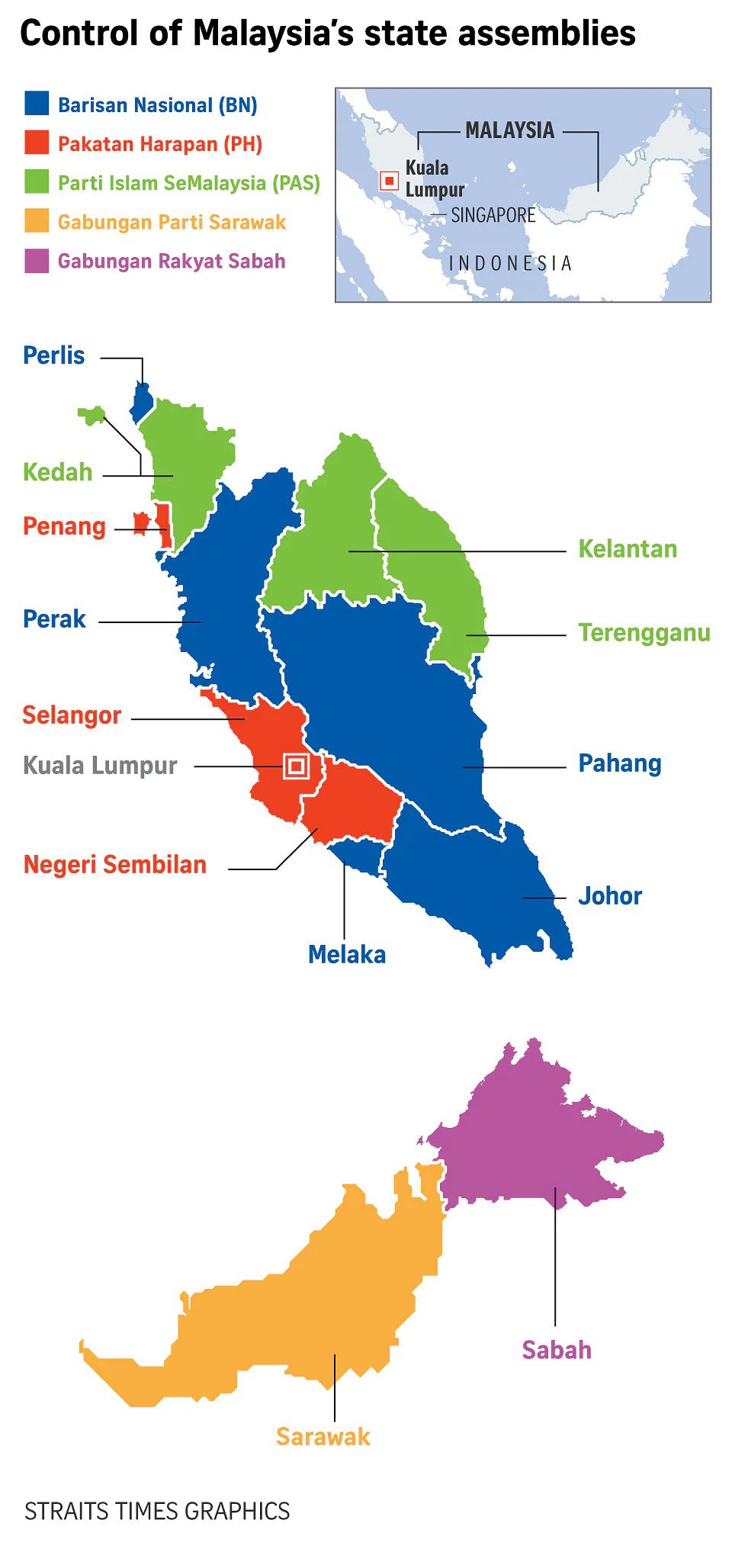AN UNENDING POLITICAL DRAMA
October 22, 2022 | Expert Insights

Political stability seems to be evading Malaysia. The country will go to elections next month to elect a new administration, but fears remain. With the vote occurring over a year ahead of schedule, Prime Minister Ismail Sabri Yaakob and his shaky coalition hope to build on recent victories.
Najib Razak, the former premier, and head of the Barisan Nasional (BN), currently serving a 12-year prison term for his part in the multibillion-dollar 1MDB scam, may, nonetheless, take great interest in the outcome.
Background
Malaysia is no stranger to political instabilities; nevertheless, the current situation originated four years ago. Cracks in the political system started to appear after the well-entrenched Barisan Nasional alliance, which had ruled the nation since 1957, was ousted in 2018. Since then, other coalitions have attempted to lead the country but have fallen short. Internal rivalry and favoritism have been the fundamental causes of most coalitions falling apart. Most significantly, the political void was made worse by PM Mahathir's resignation in 2020.
The move to conduct early elections comes after incumbent Prime Minister Ismail Sabri Yaakob was pressured by the United Malays National Organization (UMNO) to dissolve parliament. According to the Malaysian constitution, elections must be conducted 60 days from the date of the dissolution of parliament.
On the other hand, the public is enraged over the timing of the impending elections and the failure of political parties to give the nation political stability. The consensus is that the government should put more effort into preparing for the imminent monsoon season than it should into the next elections. Residents in Kuala Lumpur protested on September 24 in opposition to the government's plans to hold new elections.

Analysis
The UMNO promoted early elections for two main reasons. One was the intra-party bickering, and the other was their strong showing in the recent local elections. Divisions inside the organization have challenged the voter base of the UNMO. The UMNO did not want to make the same errors as its forerunners. Therefore, party leaders determined that the wisest course of action, given the escalating conflict among its ranks, was to call an early election. This plan might partially succeed, but the UMNO risks losing all the support it has garnered. Since the UMNO began its campaigning shortly after the parliament was dissolved, it has an advantage over other parties. Moreover, other parties might find it challenging to conduct widespread campaigns like the UMNO with the upcoming monsoon season.
With numerous coalitions competing for votes, including the UMNO-led Barisan Nasional and the Pakatan Harapan alliance of opposition leader Anwar Ibrahim, the elections will feature multi-cornered fights. This makes it difficult for any party to secure the absolute majority required to maintain political stability.
The primary cause of the public's discontent with the approaching elections has been the government's poor management of floods during the previous year's monsoon season. Fifty-four people were killed, and USD 1.3 billion in damages were caused by the floods last year. The public has demanded that the millions spent on polling by the current administration could have been better used to control the floods this year. Protests may break out all across the nation if this year's monsoon season is even worse than it was last year. The vulnerable situation of the economy has also caused alarm among the populace. The ringgit has steadily lost value, and high inflation rates have left about 70 per cent of the nation's low-income families struggling to make ends meet.
Even with all the negative coverage surrounding the election, a few things could be for the better. Since the government lowered the voting age from 21 to 18, over 5.8 million more people will cast ballots in the forthcoming election, thus giving a greater voice to the younger generation. The elections will also allow political parties to purge the administration of any corrupt mechanism since, after the 1 MDB scandal, they have made anti-corruption legislation their go-to tactic for winning over the electorate.
Assessment
- The heightened political focus on upcoming elections poses the risk of detracting resources that could be used to address the country's economic struggles and predicted weather hazards.
- Most candidates contesting in the polls have concentrated more on domestic than external issues. There has been no mention of even close allies like the US, South Korea, and Singapore. This could signify a potential shift in Malaysia's outlook toward regional and international politics.
- Recent years have demonstrated that Malaysia's political landscape needs to bid adieu to its ‘titans' and open the political arena to newcomers who could hopefully stabilize its politics and give it a more focused direction. After all, Malaysia has always been an important lynchpin in the economic fabric of SE Asia and was once tipped to become the 'fifth Asian Tiger’ after Singapore, Hong Kong, Taiwan, and South Korea.








Comments